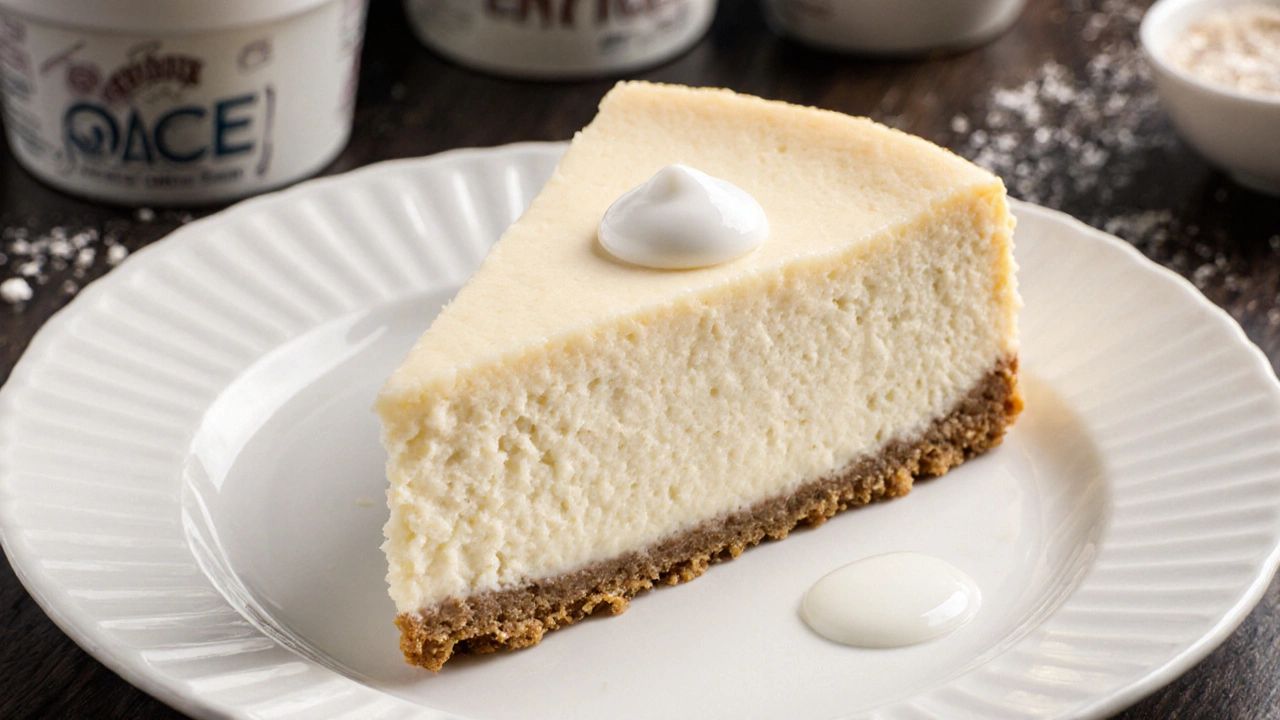Cheesecake Taste: What Makes It Rich, Creamy, and Irresistible
When you bite into a cheesecake, a dense, baked dessert made primarily from cream cheese, sugar, and eggs, often served chilled. Also known as New York-style cheesecake, it doesn’t rise like a cake—it sinks into your mouth with a velvety weight that feels more like custard than sponge. That’s not magic. It’s science. And it starts with cream cheese, a soft, unripened cheese made from milk and cream, with at least 33% fat, forming the backbone of most cheesecakes. The higher the fat, the smoother the taste. Low-fat versions? They taste watery. Plain. Like a dessert that forgot its purpose.
Then there’s double cream, a British-style heavy cream with 48% fat or more, often used in European cheesecakes for extra richness and stability. It’s not just a substitute for whipping cream—it changes the whole game. Double cream gives cheesecake that slow-melt quality, the kind that lingers. Compare it to a standard American cheesecake made with whipping cream, and you’ll notice the difference: one feels luxurious, the other just sweet. And don’t sleep on vinegar, a tiny splash added to cheesecake batter to stabilize proteins and prevent cracking, while subtly brightening the flavor. It’s not there to taste sour. It’s there to make the cream cheese sing louder.
People think cheesecake is just sweet. But the best ones have layers—tang from the cheese, warmth from vanilla, a hint of salt, and sometimes even citrus zest. That’s why a simple vanilla cheesecake can beat a chocolate one. It’s not about the flavor bomb. It’s about balance. And texture. A perfect cheesecake shouldn’t be jiggly like pudding, nor dry like a sponge. It should hold its shape but yield gently, like a cloud that remembers it’s made of dairy.
That’s why the posts here don’t just list recipes. They dig into the why. Why does adding a second egg make cheesecake crack? Why does chilling it overnight change the taste? Why do some people swear by sour cream, and others by Greek yogurt? You’ll find answers in real tests, real bakers, and real taste failures that turned into wins. No fluff. No guesses. Just what works—and what doesn’t—when you’re chasing that one perfect bite.
Cheesecake tastes so good because of the perfect balance of fat, sugar, acidity, and texture. Cream cheese, eggs, and careful baking create a creamy, rich dessert that satisfies on every level.
